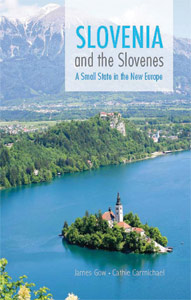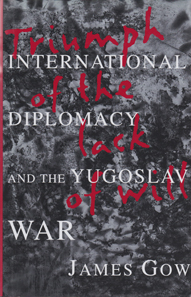Description
One of Europe’s smallest countries, with a population of less than 2 million, Slovenia has an ancient and distinct national culture. It emerged in 1991 after fighting a brief war of independence to leave behind the remnants of Tito’s Yugoslavia. Traces of the Slovene language are found in documents of the ninth century, a system of peasant democracy is recorded in medieval times, and a Slovene Bible appeared as early as 1557. This volume provides a comprehensive survey of Slovenia and its people, including details of political, economic, military and cultural life. There are few books available on Slovenia and this new edition of a classic has been revised and expanded to bring the reader up to date.
Reviews
‘Since the violent disintegration of the former Yugoslavia in the 1990s, Western scholars have published more books about Bosnia or Serbia than about Slovenia. Carmichael and Gow have added a valuable contribution to correcting that imbalance in Western academic sources. Their well-documented volume offers an excellent and in-depth introduction to Slovenia’s history, culture, struggle for independence, and the modern-day prospects for Slovenia’s integration into Europe’s supranational organisations’. –– Canadian Slavonic Review
Author(s)
Cathie Carmichael teaches Eastern European History at the University of East Anglia and is the author of Ethnic Cleansing in the Balkans: Nationalism and the Destruction of Tradition.
James Gow is Professor of International Peace and Security at King's College London. He is the author of several books on the former Yugoslavia, among them The Serbian Project and its Adversaries: A Strategy of War Crimes (Hurst, 2003), Triumph of the Lack of Will: International Diplomacy and the Yugoslav Way (Hurst, 1997) and Legitimacy and the Military: The Yugoslav Crisis (1992). He was the first prosecution witness to be called at the UN International Criminal Tribunal for the former Yugoslavia.


